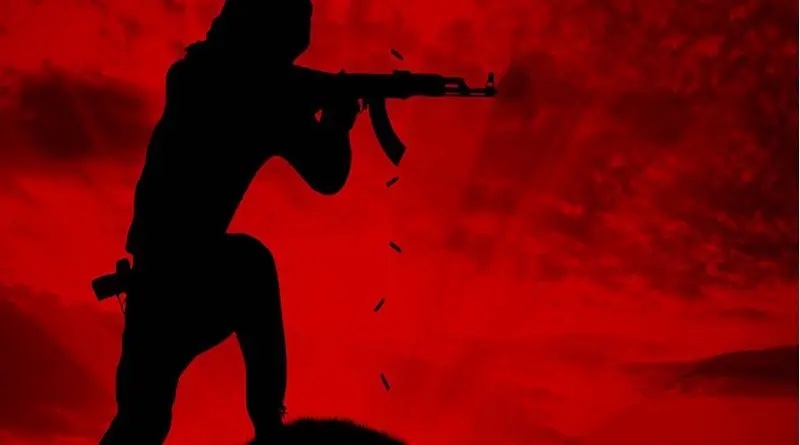How Does Pakistan See The War On Terrorism? – Analysis
By IPCS
by D Suba Chandran
This commentary is a response to a recent article on the war on terrorism (WoT), written by a former Foreign Secretary of Pakistan, Ambassador Shamsad Ahmed, which appeared in The News (http://bit.ly/KdScTU). Ambassador Ahmed argued: “We never had extremism in our country. Gen Musharraf allowed this monster to grow only to remain relevant in the war on terror and thus prolong his military rule. We also didn’t have this intensity of violence before he took over. The only violence we knew was sectarian in nature. Our involvement in this campaign today complicates our tasks, both at home and at regional and global levels. Our territorial integrity is being violated with impunity. We are accepting the responsibility for crimes we have not committed.”
What is the position of the majority of people in Pakistan on the war on terrorism?
Extremism in Pakistan is a post-9/11 phenomenon
Many in Pakistan believe that the radical violence in Pakistan is the result of the American invasion of Afghanistan. However, neither history nor facts support this position fully. True, the nature of violence and its extent in Pakistan post-9/11 is unprecedented as compared to before, but to blame everything on 9/11 would be doing great disservice to the history of Pakistan.
There were, at least, three streaks of violence existing simultaneously within Pakistan, even before 9/11. The first streak was sectarian in nature, whose reverberations could be seen from the 1950s. While the sectarian strain initially targeted only the Ahmadiyah sect, it underwent significant changes since the 1970s. The Khomeini revolution in Iran and General Zia’s rule expanded the sectarian targets to include the Shias as well. Moreover, in the 1990s, sub-sects of Sunni Islam, such as the Barelvis and Deobandis were also targeted. Today, Sufi Islam has also been targeted as seen in the suicide attacks on Sufi shrines in Karachi and Lahore.
The second streak of violence within Pakistan was the blow back of its intervention in India and Afghanistan. Pakistan’s voluntary involvement in the US-led jihad in Afghanistan in the 1980s not only militarized the Pashtun society in FATA, but also radicalized it through the use of jihad, fed by numerous madrassas. This involvement also allowed the international radical groups, mainly Osama bin Laden and his al Qaeda, along with numerous other radical outfits from Chechenya and Uzbekistan to enter into the tribal regions of Pakistan. This intermingling would have followed an independent violent course, irrespective of 9/11 and the American invasion of Afghanistan.
Pakistan’s involvement in Jammu & Kashmir (J&K) in the late 1980s and 1990s through proxies, such as Lashkar-e-Toiba, Jaish-e-Mohammad and Harkat-ul-Mujahideen started another trend. While the Lashkar remains under the control of the Pakistani Establishment until today, half of what is referred to as the Punjabi Taliban comes from the erstwhile Jaish-e-Mohammad. The militarization and radicalization of the society in Punjab, especially the southern belt, is primarily to achieve Pakistan’s external interests in J&K and the rest of India.
The third streak of violence is ethnic in nature. From Quetta to Karachi, the primarily ethno-political violent streak is led by the Baloch and Mohajir communities. Today, the Pashtuns have also become the perpetrators of violence, especially in Karachi. The religious parties and their radical support groups super-impose a sectarian layer on an existing fault line, for purely political reasons.
How is 9/11 and the resultant American invasion related to the above mentioned streaks of violence and extremism?
Blame Musharraf for everything that is going wrong today, especially Pakistan’s position on WoT
Today, it has become fashionable within Pakistan to blame Musharraf for everything. He was neither a saint nor a statesman, but a great survivor. What were his options when faced with an impending American attack for not supporting its war on terror? He was, instead, at the receiving end of the fallout of the policies followed by the military, political and intelligence leadership in the 1980s and 1990s.
If he was the problem, what differences has there been in Pakistan’s pursuit of the WoT after he left office in 2008? Although, President Zardari, Lt. Gen. Pasha, General Kayani and Prime Minister Gilani did have an option to discredit Musharraf and start all over, what did they do?
It is correct, as Ambassador Ahmed has highlighted, that there is pressure on Pakistan, at times, to accept the responsibility for crimes they have not committed. But what about accepting those crimes that have been deliberately committed by Pakistan in the name of pursuing their national interests? A section within Pakistan, is attempting to look inwards and stabilize the future course of Pakistan by reshaping the internal and external relations. Unfortunately, they are in a minority, and often criticized as being moderates, liberals and/or pro-American or pro-Indian.
Blaming everything on 9/11 is escaping from the reality and externalizing the internal problems that led to radicalism in Pakistan. Such a projection would harm Pakistan more than finding any solutions to the problem.
If the diagnosis itself is wrong, what are the chances of coming up with the right prescriptions?
D Suba Chandran
Director, Institute of Peace and Conflict Studies & Visiting Professor, Pakistan Studies Programme, Jamia Millia Islamia
email: [email protected]


Pakistan has been living on fabricated history since its birth. When Jinnah felt threatened by Pashtun separatist nationalism, he decided to despatch the Pashtun tribal hordes to attack Kashmir, in order to distract Pashtuns from their own nationalism and separatism. Thus began the Kashmir conflict, which Pakistan has never admitted to starting, much less as to why.
Pakistan is ultimately the product of a failed attempt by Middle Eastern culture to conquer/colonize a completely different culture in SouthAsia. Without the continuation of that conquest/colonization, they have nowhere to go, no future to strive for. They have no intrinsic means to survive on their own.